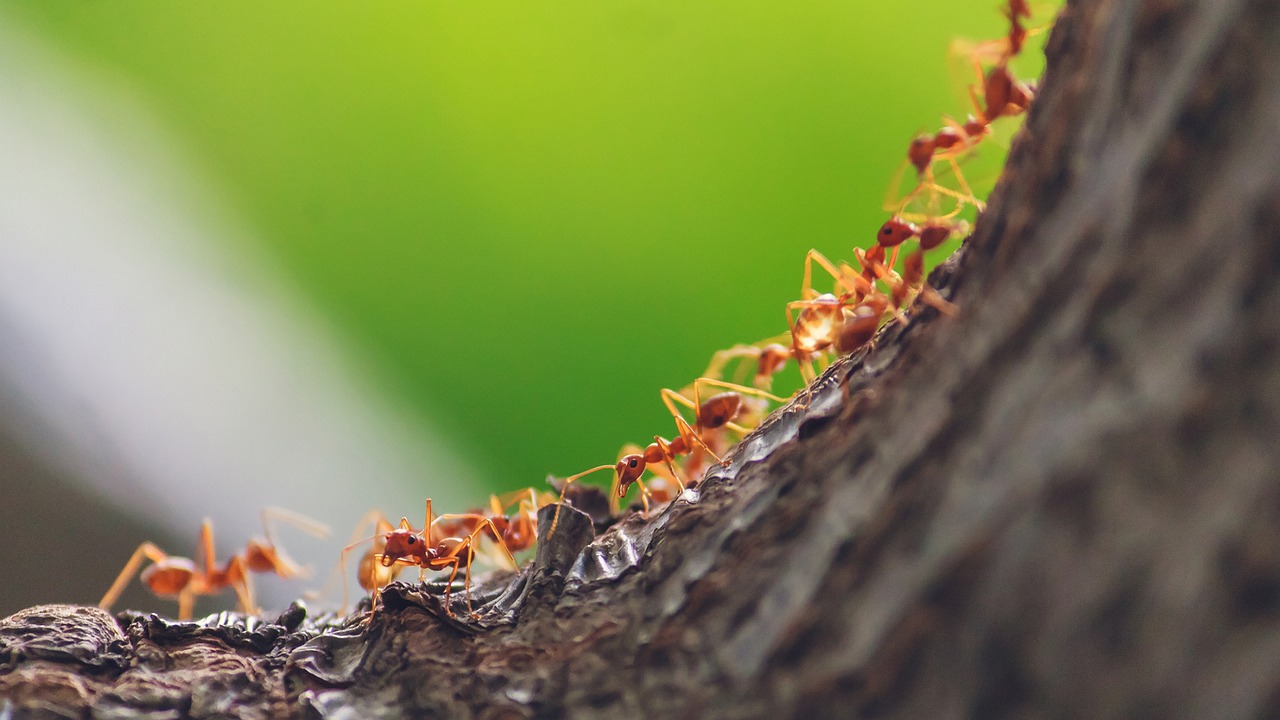Physical Address
304 North Cardinal St.
Dorchester Center, MA 02124
Physical Address
304 North Cardinal St.
Dorchester Center, MA 02124
[ad_1]

The thirty fifth convention on Neural Info Processing Methods (NeurIPS2021) featured eight invited talks. On this submit, we give a flavour of the ultimate presentation.
Radhika’s analysis focusses on collective intelligence, with the overarching objective being to know how massive teams of people, with native interplay guidelines, can cooperate to realize globally complicated behaviour. These are fascinating programs. Every particular person is miniscule in comparison with the large phenomena that they create, and, with a restricted view of the actions of the remainder of the swarm, they obtain placing coordination.
collective intelligence from an algorithmic point-of-view, the phenomenon emerges from many people interacting utilizing easy guidelines. When run by these massive, decentralised teams, these easy guidelines end in extremely smart behaviour.
The topic of Radhika’s discuss was military ants, a species which spectacularly reveal collective intelligence. With none chief, hundreds of thousands of ants work collectively to self-assemble nests and construct bridge constructions utilizing their very own our bodies.
One specific side of examine involved self-assembly of such bridges. Radhika’s analysis group, which comprised three roboticists and two biologists, discovered that the ants created bridges adapt to site visitors stream and terrain. The ants additionally disassembled the bridge when the stream of ants had stopped and it wasn’t wanted any extra.
The group proposed the next easy speculation to clarify this behaviour utilizing native guidelines: if an ant is strolling alongside, and experiences congestion (i.e. one other ant steps on it), then it turns into stationary and turns right into a bridge, permitting different ants to stroll over it. Then, if no ants are strolling on it any extra, it might stand up and go away.
These observations, and this speculation, led the group to think about two analysis questions:
There have been two motivations for these questions. Firstly, the objective of transferring nearer to realising robotic swarms that may resolve issues in a specific atmosphere. Secondly, using an artificial system to higher perceive the collective intelligence of military ants.
 Screenshot from Radhika’s discuss
Screenshot from Radhika’s discuss
Radhika confirmed an indication of the comfortable robotic designed by her group. It has two toes and a comfortable physique, and strikes by flipping – one foot stays hooked up, whereas the opposite detaches from the floor and flips to connect in a unique place. This permits motion in any orientation. Upon detaching, a foot searches by means of area to search out someplace to connect. Through the use of grippers on the toes that may hook onto textured surfaces, and having a stretchable Velcro pores and skin, the robots can climb over one another, just like the ants. The robotic pulses, and makes use of a vibration sensor, to detect whether or not it’s in touch with one other robotic. A video demonstration of two robots interacting confirmed that they’ve efficiently created a system that may recreate the easy speculation outlined above.
To be able to examine the high-level properties of military ant bridges, which might require an enormous variety of robots, the group created a simulation. Modelling the ants to have the identical traits as their bodily robots, they have been capable of replicate the excessive stage properties of military ant bridges with their hypothesized guidelines.
You’ll be able to learn the round-ups of the opposite NeurIPS invited talks at these hyperlinks:
#NeurIPS2021 invited talks round-up: half one – Duolingo, the banality of scale and estimating the imply
#NeurIPS2021 invited talks round-up: half two – benign overfitting, optimum transport, and human and machine intelligence
tags: bio-inspired, c-Analysis-Innovation, Swarming

Lucy Smith
is Managing Editor for AIhub.
[ad_2]